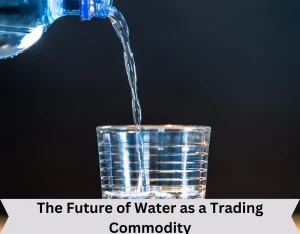ForumIAS announcing GS Foundation Program for UPSC CSE 2025-26 from 19 April. Click Here for more information.
ForumIAS Answer Writing Focus Group (AWFG) for Mains 2024 commencing from 24th June 2024. The Entrance Test for the program will be held on 28th April 2024 at 9 AM. To know more about the program visit: https://forumias.com/blog/awfg2024
Source: This post on Trading of Water as a Commodity has been created based on the article “The future of water” published in “Indian Express” on 3rd February 2024.
UPSC Syllabus Topic: GS Paper 1 Geography – Distribution of key natural resources across the world (including South Asia and the Indian subcontinent).
News: Future of Water as a Trading Commodity, The article discusses the issue of the trading of water as a commodity. It also highlights the safeguards regarding access to water established by the Constitution and Supreme Court.
Recently, there have been reports of water being traded as a commodity (like gold, oil). For instance, a futures contract allows buyers and sellers to barter a fixed price for the delivery of a fixed quantity of water at a future date.
What are The Concerns With the Trading of Water as a Commodity.?
- One should not put a value on water as it belongs to everyone and is a public good.
- If water was traded as a futures commodity, then hedge funds, banks, large industrial and agricultural players would buy into it and marginalize vulnerable sections like small-scale farmers.
According to the author, if this happens, water scarcity will become a norm and water will become unaffordable for many.
What is The Situation of Water Scarcity?
Water scarcity is caused by the overuse of groundwater, climate change, a warming planet and rapid migration to already overpopulated large cities.
Globally: The UN 2023 World Water Development Report notes that 26% of the world’s population does not have access to safe drinking water.
In India: The World Bank explains that India has 18% of the world’s population, but only 4% of its water resources, making it among the most water-stressed in the world.
Want To Know More Topics-
India-Myanmar Relations- In Wake of Ongoing Crisis
Analysis of the Interim Budget 2024- Explained P
How Do The Constitution and Supreme Court Deal with Issues of Access to Water?
1) Constitution:
a. Article 262 provides that Parliament may by law provide for the adjudication of any dispute with respect to the use, distribution or control of the waters of any inter-State river or river valley.
Hence, Inter-State Water Disputes Act, 1956 was enacted to deal with complaints by state governments against each other. For instance, Cauvery water dispute between Tamil Nadu and Karnataka.
b. Article 39 provides that the state shall direct its policy towards securing that the ownership and control of material resources of the community are distributed to subserve the common good. Water would fall within this category of resources.
2) Supreme Court:
a. In Narmada Bachao Andolan v Union of India (2000), the Court concluded that water is part of the right to life enshrined in Article 21.
b. In A.P. Pollution Control Board II v Prof. M.V. Nayudu (2001), the court declared that it is the duty of the state under Article 21 to provide clean drinking water to its citizens.
Thus, a fundamental right for every Indian to access safe and clean water has been established. This may act as the deterrence against pricing water outside the reach of the average Indian.
How is Pricing of Water Determined in India?
Water pricing is determined by states by the respective municipality frameworks. There is no central authority for the regulation of water pricing.
Question for practice:
What are the issues with the trading of water as a commodity? Elaborate upon the safeguards regarding access to water established by the Constitution and Supreme Court in India.





